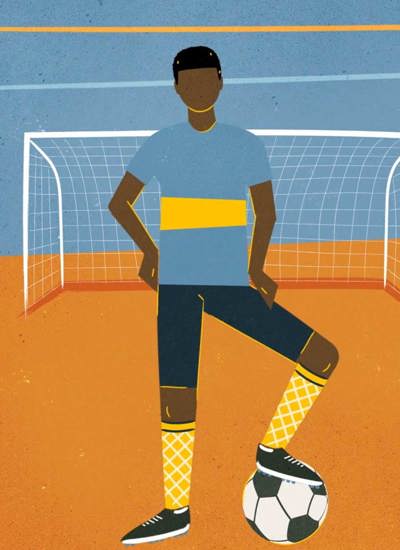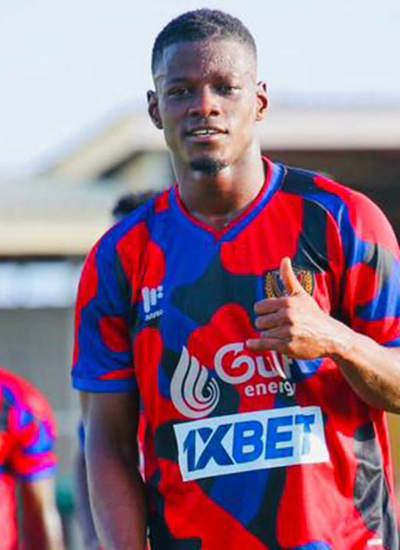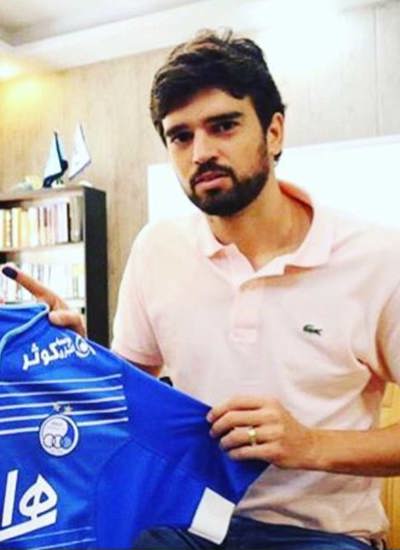
‘Gilbert’ was ready for a new step in his professional career and in the summer of 2018 accepted a move to an African club in one of the continent’s top leagues. He ended up in a legal battle that lasted for more than four years before he, with the support of FIFPRO and his domestic player union, finally won his case.
By Gilbert
I want to make clear that I am sharing my story to inform other players about the risks they face when playing abroad. It is not my intention to blame and shame other people, which is why I am writing this as ‘Gilbert’, which is not my real name, and I won’t mention the club or country.
At first, the plans for a move to Africa from Europe seemed great. I was approached by a former player, who was supporting an ambitious club with building their squad. They were a small team aiming to be a mainstay among the six best clubs in their country’s top league.
I knew the country as I had played in the national youth sides. I knew the league, the teams, the stadiums, and I knew how fans appreciated players there. I simply had to experience playing in those beautiful stadiums.
But I made a big mistake: I signed my contract without checking clauses and handed it over to the former player who was arranging my move. I never even got a copy of the contract. This is my first piece of advice to players: have your contract checked with your player union and ask for a copy after you’ve signed it, even when you think you can trust the people you are dealing with. As a player, you are vulnerable – especially in a foreign country.
Everything appeared to be arranged very well: travel was covered and I was staying in nice apartments. But after two months, I had still not received my salary and signing fee. I talked about it with the contact, the former player, who reassured me that things were going to be taken care of.

I headed for a month-long training camp with the club and in the final week, the entire team was evicted from the hotel. The club had not paid for anything. Apparently, the club’s leadership was fighting amongst themselves. The chairman left, along with the contact, from whom we never heard again.
After the training camp and a four-day break for the Feast of Sacrifice (Eid al-Adha), the team got on the bus for a nine-hour ride in August to face one of the country’s top sides. We were beaten 6-0, which was no surprise after four days without practice and an arduous journey.
In September, the club informed myself and three other players who had signed at the same time that we had to leave. In the media, they told negative stories about us, that we were only there to take the money and were out to ruin the club. But at this stage, none of us had received a single cent from the club.
The club wanted to terminate our contracts and were applying all sorts of pressure to mentally break us. The club were threatening me, humiliating me, provoking me to try and give them a reaction. One day, I was called into an office where five imposing, aggressive guys were urging me to sign a termination agreement. When I refused, they literally threw me out of the office.
They wanted me and the other players to react so they could use that against us. But we were aware that if we reacted, it wouldn’t end well for us.

I also received a 20,000 euro fine for being rude to the new chairman, which was simply not true. Luckily, I had taken precautions to protect myself and I had recorded all conversations on my phone, which I had hidden in my pocket.
Remaining at the club all this time was extremely difficult. The other three players and I were counting down the days until we could leave. I remember a photo of us from that period: we looked tired, had long hair and beards. But we stuck together during this challenging time.
We received support from our player union, which we contacted very quickly. I would encourage all footballers to join their union, especially when wanting to play abroad. They supported us very well, as did FIFPRO, who got involved through our domestic union. Whenever we called, whenever we asked for something, they were there to talk with us, listen to us and reassure us. I don’t know how we would have managed without the union. How could we have afforded any lawyer when we had not received our salaries from the club?
The union asked us to send our contracts, but we didn’t have them. On our day off, we rented a car and drove for seven hours to the FA’s office in the capital to get our contracts. First, the FA told us that they didn’t have them, but when we returned to the office hours later, someone else simply handed over our contracts, which seemed strange. We then noticed our contracts had been adjusted. It was so obvious, with a pen they had changed dates, amounts, and forged signatures.
Finally, in October, FIFPRO and our union informed us that we could leave. We had waited long enough to safely terminate our contract with just cause. I was so relieved when I returned home, but it took me three to four months before I was back to my old self. I didn’t want to do anything, didn’t want to leave my home, and didn’t want to play football.
My experience in Africa ruined my career. I had played professionally in Europe before going there, so I felt I was good enough to play in Africa. But after what happened, I didn’t want to play anymore. Sometimes it hurts when I watch matches on television and see players with whom I played with in the international youth teams. You start to think of what could have been if this all had not happened.
I want to use my story to bring awareness of what can happen to footballers when playing abroad. It is why it’s so important for players to join their union.

Why Gilbert’s story is important to FIFPRO and other players
To FIFPRO, Gilbert’s case is special. For the first time, FIFPRO’s legal department successfully invoked a new article in the FIFA Disciplinary Code.
Gilbert managed to win his case at the National Dispute Resolution Chamber (NDRC) on 2 August 2019, with his former club ordered to pay his outstanding salary. However, the club refused to respond and never paid Gilbert even after he sent them three notices between September 2020 and March 2022.
Gilbert also sent four written requests to the African country’s football federation between October 2020 and October 2022, asking them to enforce the decision that the club should pay him. However, the federation did not answer any of his letters.
In May 2023, three years and nine months after the decision of the NDRC, FIFPRO took Gilbert’s case to the FIFA Disciplinary Committee. According to Article 21.5 of the FIFA Disciplinary Code, an association will be fined for failing to enforce a decision made by a competent decision-making body within that association. When the association persists in failing to enforce the decision, additional disciplinary measures could be imposed on the association.
Regarding the case of Gilbert, the federation failed to enforce the decision passed by its own NDRC, and therefore could be sanctioned under the FIFA Disciplinary Code.
As Gilbert had already requested the federation several times to intervene, but still had not received the decisions of 2 August 2019, he requested the FIFA Disciplinary Committee to sanction the federation. It proved to be a successful approach: in late 2023, Gilbert finally received the money he was owed.
FIFPRO’s Legal Director Roy Vermeer welcomes the introduction of Article 21.5: “Too often we are faced with situations where players have binding decisions passed by National Disputes Resolution Chambers of national federations but we are not able to execute them, and the national federations do not use their disciplinary power to protect these players’ rights.
“The introduction by FIFA in 2023 of Article 21.5 in its Disciplinary Code showed to be of crucial importance in Gilbert’s case. After more than four years, he was finally able to receive his financial dues.”


